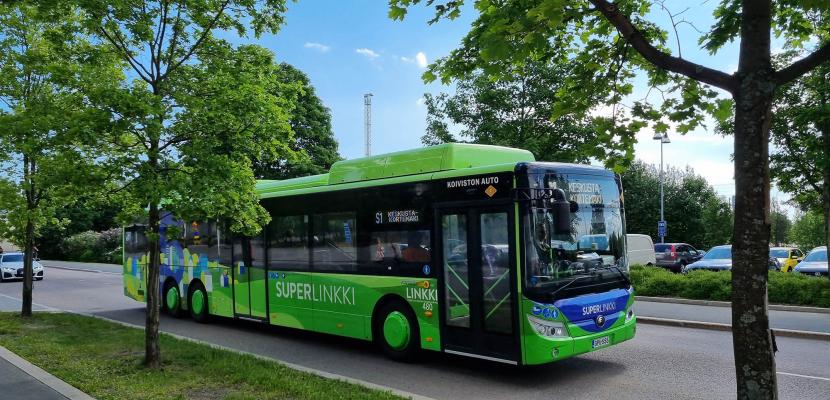
Public transport in city of Jyvaskyla

About this good practice
Jyvaskyla has been facing significant challenges in its public transport system to fulfil carbon neutral target at year 2030, highlighting the need to boost usages of EV buses and renewable fuels.
To address these issues, Jyvaskyla implemented several initiatives. They introduced the first biogas bus already in 2019 and the first electric bus in May 2023. By summer 2024, 70% of the fleet will be electric, with the rest using biodiesel or biogas. Action will contribute to accelerate the large-scale increased usage of fossil fuel free Compressed Bio Gas(CBG) and battery electric buses to decarbonise public transport in the Jyvaskyla region. This shift aims to reduce emissions and promote mobility sustainability.
The city also expanded its public transport route network, increasing service by 30% annually. The Public Transport Authority engaged with schools to make bus travel appealing to young people, and the customers’ board regularly met to resolve issues.
These efforts led to a record 8.7 million trips in 2023, with 2024 starting even better. The “Linkki into the future 2030” program aims to double journeys to 15 million by 2030, reflecting Jyvaskyla’s commitment to continuous improvement and sustainability.
By addressing the identified problems through targeted actions, Jyvaskyla is making significant progress towards its objectives of increased usage of EV buses, sustainability, and improved public transport services and brand itself& advertising.
Resources needed
For the operator, this has meant the recruitment of 65 new drivers (195 => 260) and an investment in new electric buses under the new contracts estimated at around €27.5 million. On the public transport authority side, human resources have increased by one employee.
Evidence of success
Since the COVID, the number of journeys has increased rapidly and has now surpassed 2019 figure (7.7 mil. journeys). In 2023, the number of journeys was 8.7 million and 2024 has so far been better than 2023.
Customer satisfaction in scale 1-5 is 4,22, which was a very good.
Biogas and electric buses emit up to 90 % less than diesel vehicles.
Potential for learning or transfer
Public opinion played a crucial role in shaping these initiatives. The community’s growing environmental awareness and demand for greener alternatives supported the move towards more sustainable transport options. Feedback from passengers helped tailor services to meet their needs, and the school engagement program aimed to build a future customer base. The design phase of public transport needs to be started as earlier than possible and co-operation with region / area development plan and land usage.
By addressing the identified problems through targeted actions, Jyvaskyla made significant progress towards its objectives of increased usage of EV buses, sustainability, and improved public transport services. This comprehensive approach can inspire other public authorities to develop more effective and user-centred public transport policies.
Further information
Good practice owner
You can contact the good practice owner below for more detailed information.